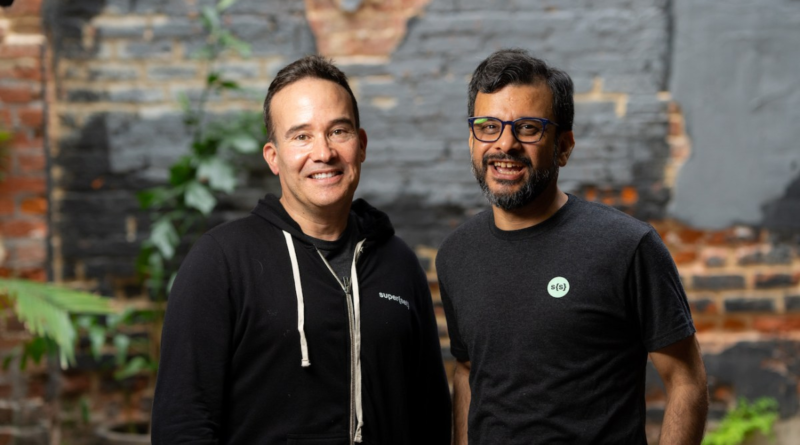Boutique startup studio super{set} gets another $90 million to co-found data and AI companies
Startup studio super{set} has a fresh exit under its belt with the sale of marketing company Habu to LiveRamp for $200 million in January. Now, super{set} is adding another $90 million to its coffers as it doubles down on its strategy of building enterprise startups.
“In some ways, very little has changed since our launch. We remain a venture studio focused on building companies rooted in data and AI. We found, fund and build new technology startups, mostly in the enterprise space,” founding managing partner Tom Chavez told TechCrunch.
What has changed since 2019, however, is the rest of the market; and Chavez sounds vindicated. Building “admittedly boring but bountiful products,” as TechCrunch reported at the time, turned out to be a solid enough bet for super{set} to now double down. In total, it has secured $176 million in funding so far.
There are lots of venture studios out there — according to one of them, Enhance Ventures, “the venture builder phenomenon started in 1996 and built momentum in the last decade to become a new norm with massive funding and a long list of exits.” But super{set}’s edge is that it’s run by builders with a solid track record of their own.
While super{set} is backed by external investors, including family offices and tech investors, some of its capital comes from Chavez and his fellow founding managing partner, Vivek Vaidya. The pair previously co-founded Krux, which they sold to Salesforce. And previously, Microsoft bought Rapt, which Chavez co-founded and where Vaidya served as CTO. Together, these two exits amounted to $1.2 billion, and the duo is now putting some of their earnings into super{set}.
“Our investors like to see that; they know that we’re perfectly aligned in terms of the outcomes and investments we’re making,” Chavez said. “But we’re also very lucky to have a pretty interesting diverse base of LPs, who bring a lot of expertise and ask a lot of useful questions about what we’re doing.”
The studio’s focus on AI is not under question, but unlike many investors who back foundational AI, super{set} is more interested in what it refers to as the engineering of AI.
“The LLM substrate creates a great opportunity for people like us who want to figure out how to engineer useful applications that draw on all those kinds of systems,” Chavez said, describing the rising interest and innovation around large language models.
While entrepreneurs could take a stab at this on their own, super{set} offers them an alternative to running up and down Sand Hill Road trying to get funding for an unproven idea, Chavez said. “We make all that go away so that the teams can focus just on product and customers.”
Venture studio, super{set) style
A more difficult fundraising environment can create tailwinds for venture studios, and not just because it’s easier to attract entrepreneurs. Investors also like to know that the studio will get enough ownership to get a significant return if a company becomes successful.
However, there’s a line between enough ownership and too much ownership, especially when the added value is not clear. The venture studio space is still a pretty wide spectrum, but according to Chavez, super{set}’s model is “quite different from what most venture studios are doing.”
One big difference is volume: With 16 companies in its portfolio, super{set} is much more hands-on than studios that create a dozen companies each month. It will even lower the number of companies it forms to two or three per year, compared to four or five in its early days.
The pair doesn’t pursue every idea it comes up with. One tool is a solution memo, its version of the typical venture capital investment memo, which is an analysis of whether an opportunity is worth pursuing. That’s one aspect in which super{set} has changed compared to 2019, Chavez said, as its method went from art to science.
Whether it’s science or craft, Chavez and Vaidya are good at picking people to work with, said Alex Bangash, a limited partner whose VC fund, Transpose Platform, has several startup studios in its portfolio. “Tom and Vivek are not just hyper-focused on pulling the right talent but also spotting who has the mettle to become a co-founder and then elevating and growing that talent alongside their company.”
After validating an idea, super{set} finds a product-oriented co-founder for it, and its help goes from hands-on to lighter-touch mentoring as time goes by, but without a cliff like in an accelerator program. In the early days, its support includes recruitment, marketing, sales and fundraising.
Co-founders, and later on, companies can also work from the new space super{set} recently moved into: the entire fourth floor of San Francisco’s landmark 140 New Montgomery building, also home to VC firm Greylock. While born and raised in Albuquerque, Chavez moved to San Francisco about 30 years ago, and is bullish about the city, especially in the current “AI revolution.” super{set} wants to keep it going.




